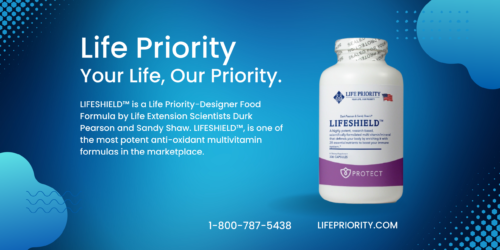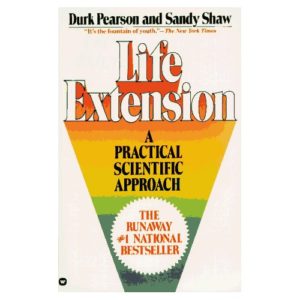

“Free Radical Theory on Aging”scientist Denham Harman
- by Life Priority
- No Comments
- Post Views: 27
Scientist and researcher Denham Harmon is best known for his “Free Radical Theory on Aging” Dr. Harman developed the free-radical theory of aging in 1954. The theory holds that one of the byproducts of oxygen use is adverse chemical reactions in cells, which results in aging and, ultimately, death. Initially the theory was scoffed at, but by the 1980s, free radicals had increasingly become part of research into cancer, cardiovascular disease and strokes. Free radicals have since been linked to Alzheimer’s disease.
Durk Pearson & Sandy Shaw–Life Extension Book Dedication: This book is dedicated to Dr. Denham Harmon, originator of the free radical theory
on aging, whose papers first interested in this field.
“We heard about Dr. Denham Harmon’s free radical series of aging. Free radicals are damaging molecules with an up-paired electron. You’ve probable heard of antioxidants like vitamins C and E and beta carotene. Well one of the main functions of these antioxidant nutrients is to protect you from free radicals. Free radicals play a significant role in cardiovascular disease, certain types of cancer, quite likely aging itself.” Sandy Shaw
Obituary Published in the Washington Post Nov.29 2014:
Denham Harman, was a scientific researcher who developed a prominent theory on aging that is still used to study cancer, Alzheimer’s disease and other illnesses, died Nov. 25 2014, at a hospital in Omaha. He was 98.
The death was announced by Tom O’Connor, a spokesman for the University of Nebraska Medical Center, where Dr. Harman worked as a researcher since 1958. The cause was not disclosed.
Harvard Medical School professor David Sinclair said that Dr. Harman’s research inspired thousands of young scientists, including himself, to work on aging research.Dr. Denham Harman, shown here in 2006, has died at 98. (Nati Harnik/Associated Press)
“Dr. Harman is one of the most influential scientists of the past 50 years, bringing world-class science to what was once a backwater of biology,” Sinclair said in an interview, adding that Dr. Harman’s theory “is a cornerstone of the aging field.”
Dr. Harman thought that with a healthy diet, regular exercise and certain vitamins, particularly vitamins C and E, aging could be slowed by reducing the production of free radicals. He also recommended limiting alcohol consumption and not smoking.
Richard Hodes, the director of the National Institute on Aging, called Dr. Harman a pioneer of aging research.
“The free-radical hypothesis has been a central element of the field ever since Dr. Harman’s landmark paper,” Hodes said. “Beyond his own work and continued exploration of the free-radical hypothesis, Dr. Harman’s contribution to science has helped lay the foundation for important, related areas of inquiry such as the mitochondrial and DNA-damage hypotheses.”
Sign up for emails from OneHeartNetwork.com:
By providing your email address, you are agreeing to our privacy policy.
RECOMMENDED




